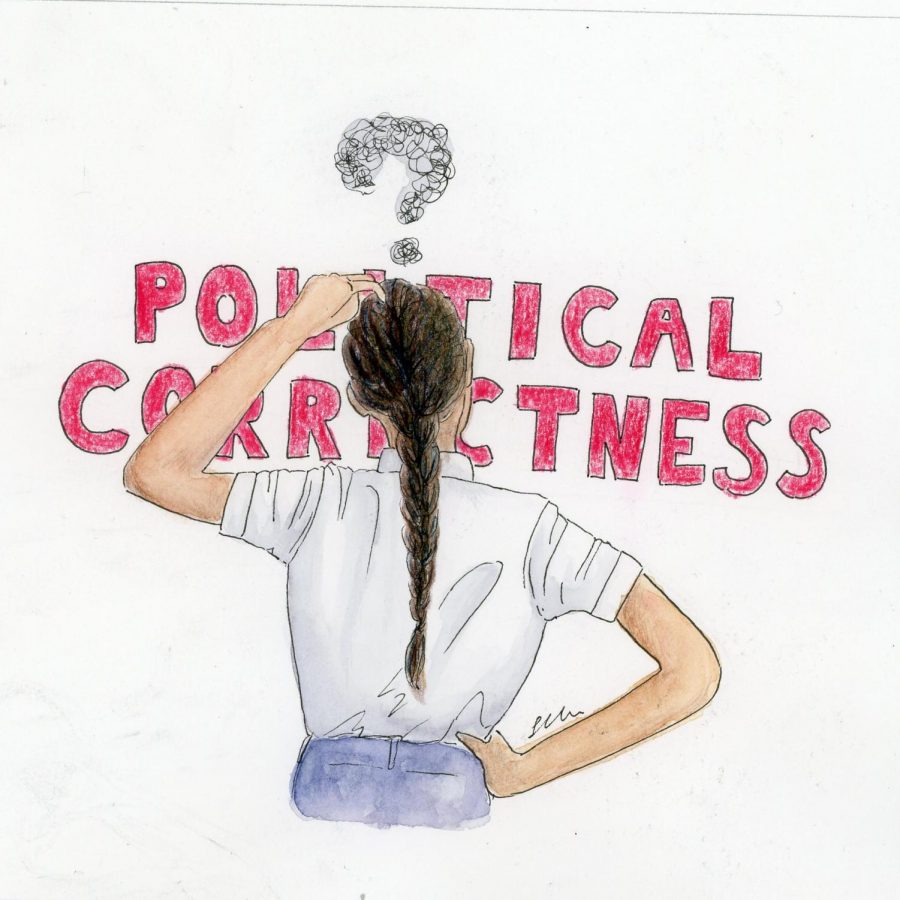Political correctness makes our politics incorrect
We step back and ask: is the increasingly widespread emphasis on political correctness … correct?
April 9, 2019
Political correctness. It likes to pop up every so often on the Internet, social media or the real world. Just when it slips your mind, it sparks at the slightest conflict on social media and sets the internet ablaze with controversy.
Although political correctness is supposed to promote inclusion, particularly online, trying to preemptively minimize conflict seems to result in more conflicts than ever before. Quite frankly, this idea of “political correctness” that’s invaded social media seems, well, ineffective at best.
The problem is that today, being politically correct often has nothing to do with being careful with words. Once, efforts to be politically correct might have exhibited sensitivity and awareness, but social media users have become obsessed over using it to silence opinions they dislike.
It’s evident in the way people have begun to criticize others for using colloquial terms such as “weak,” ignoring context, because of their connection to disabilities.
Yes, terms that have ableist histories should probably be avoided in their use, but understanding the context of how that word was used should be taken into account when passing judgement. For example, while “weak” may have some ableist connotations, using it a negative manner doesn’t necessarily mean it perpetuates discrimination against people with disabilities, i.e. referring to a bridge as “weak” isn’t ableist — architecture not being structurally sound is a danger to public safety and should be avoided.
Having said that, however, political correctness is not entirely negative.
Being politically correct is supposed to be all about inclusiveness, sensitivity and awareness directed towards minorities and the manner in which speech can potentially affect them when used thoughtlessly by the more privileged. It forces us to be aware of how the careless use of terms like “retarded” or “illegal” stigmatize affected minorities. It helps us develop our empathy and understanding of issues beyond those that directly impact us.
Being truly politically correct means to be aware of how certain words have deeper, more complex connotations and history than what is observable on the surface. However, many of the people who claim to uphold political correctness these days focus overly on criticizing others for their ignorance before addressing their own.
This problem perpetuates a strange, warped version of political correctness that actually propagates the issues political correctness is meant to battle, such as racism and misunderstandings. For example, white people have begun to claim that terms such as “black” and “people of color” are offensive when, in fact, they are not. A quick Google search would tell you as much. On the other hand, terms like “colored people” are definitely not appropriate.
Genuine political correctness would discern between the two kinds of words. Unfortunately, too many are too quick to try to be “politically correct” before knowing the subject on which they are speaking on. A race to be the “most woke” oppresses the people political correctness tries to help most by suppressing their voices for the sake of assuaging and burying a sense of white guilt.
That kind of behavior only allows people like the current president to slander political correctness on the basis that it has become blown out of proportion. Using it as a shallow excuse to attack others online over someone else’s particular word choice on Twitter on behalf of a group that you’re not part of is not political correctness. In fact, that sort of “political correctness” may be more offensive than the original “problematic” term in the first place. Forcibly correcting others on assumptions carries the danger of undermining the initial purpose of political correctness: being more aware and sensitive.
At the core of “political correctness” is the intent of being more inclusive towards one another and the different perspectives and experiences we have by being aware of speech. Political correctness has a time and place, but we should be wary of obfuscating real political change.
We need to focus on that rather than the strange and ineffective online movement that it has become. It is up to us to be more considerate, aware and open-minded in our interactions with others, rather than be swept up by the way others behave under the name of political correctness.


